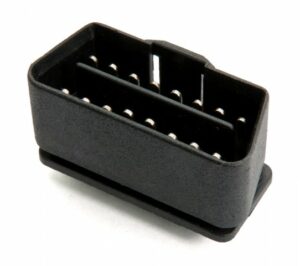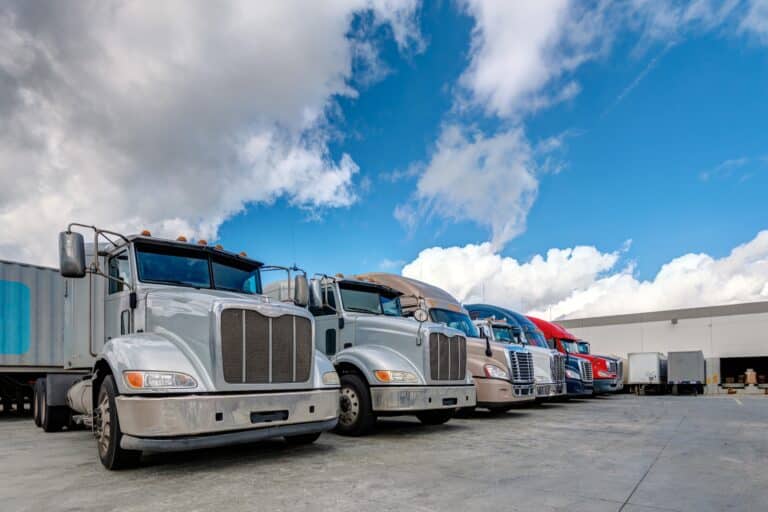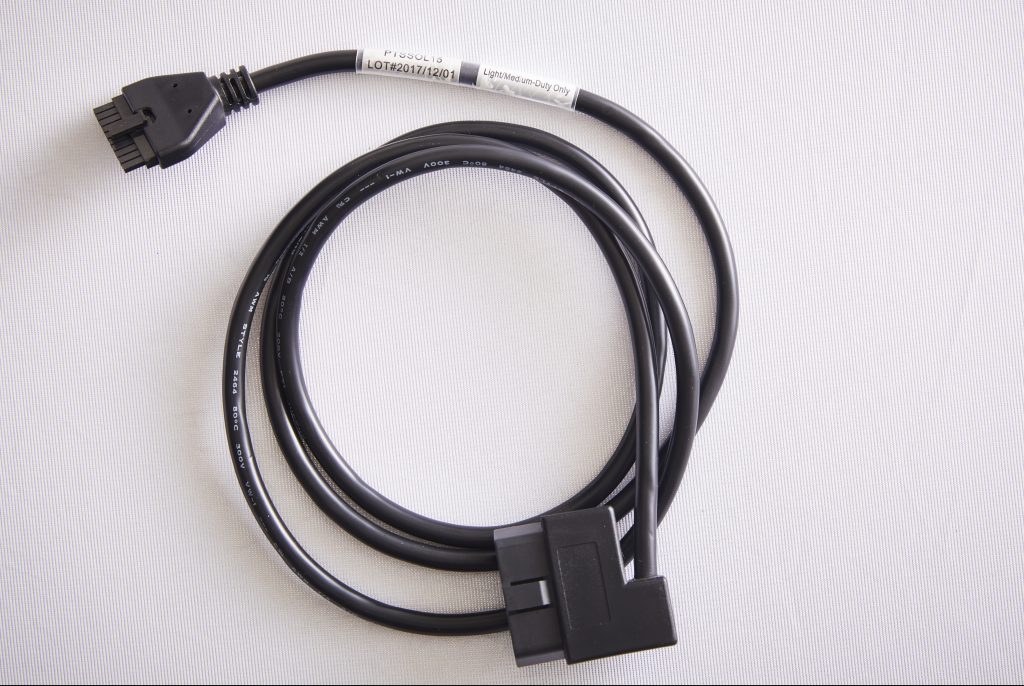An ELD is an electronic logging device that keeps track of a driver’s driving hours and checks their record of duty status (RODS). It keeps accurate records by automatically updating a driver’s hours of service records. Once an electronic logging device is connected to the commercial motor vehicle engine computer, it will automatically record the mandated information. Such information may include the vehicle’s engine power status, the distance drove, the engine mileage, driver identification, and duty status. Automatically logging in data keeps the information accurate and reduces the risk of a driver working when they are not fit to work. The data can be used by transport managers and dispatchers when scheduling work and transport officers during roadside inspections.
Аrе Drivers of OBD2 Vehicles Required to Install ELDs?
ELDs work by synchronizing with the engine of a vehicle to record driving time for the more accurate and seamless recording of hours of service (HOS). Most electronic logging devices on the market today are built for heavy-duty trucks and may not support other types of vehicles. This has left many trucking companies and owner-operators with questions about how the ELD mandate applies to light-duty and medium-duty OBD2 vehicles.
Most motor carriers and drivers who are under the requirement to maintain RODS need to comply with the ELD Rule. An electronic logging device or ELD needs to be installed in any OBD2-equipped commercial motor vehicle (CMV) that weighs over 4500 kg, either by itself or with a trailer. Those light- and medium-duty CMVs need an ELD with OBD2 functionality in order to comply with the ELD mandate.
Carriers and drivers may want to consider HOS247 – a leading manufacturer of ELDs for OBD2 vehicles. Our electronic logbook devices are suitable for all types of pickup trucks and other light/medium duty vehicles. Here, at HOS247, we take Transport Canada compliance seriously and provide our customers with the tools and support needed for efficient and compliant trucking operations.
Weight Ratings
In order to understand whether a CMV exceeds the weight requirement and is therefore required to utilize an ELD, it is important to understand the two main weight ratings: the Gross Vehicle Weight Rating (GVWR) and the Gross Combination Weight Rating (GCWR).
The GVWR is set by the manufacturer and accounts for the maximum weight that a vehicle should operate at. That includes every part of a vehicle, including the engine fluids and weight of the cargo and passengers when driven. The GCWR is also set by the manufacturer and includes the same features as the CVWR weight, as well as the weight of any attached trailer and its contents.
If the GVWR or GCWR of a vehicle exceeds 4500 kg, it is considered to be a CMV, and the driver will be required to comply with hours of service (HOS) regulations.
Determining Whether a Vehicle is OBD2 Equipped
When seeking out a vendor that is ELD-compliant, a motor vehicle carrier needs to assess whether its fleet includes any OBD2 equipped vehicles. The easiest way to answer that question is to check for the following two identification factors:
- An OBD2 connector
- A note or sticker under the hood that states it is “OBD2 Compliant”
Syncing ELD with OBD2 ECMs

Generic OBD-II is defined by SAE J1979. It specifies close to 100 parameters, and about 40 of those are available on typical light trucks and cars. Some of the parameters that are not available using generic OBD-II relate to the odometer, braking status, steering angle and general handling information. As such, it is important to have a reliable ELD for OBD-II vehicles.
Difference between Connections
HOS247 supports all types of vehicles regardless of their type of connection ports, whether J1939, J1708 or OBD2.
- OBD2 connects to the engine through an engine port in the cab.
- J1939 is the new 9-pin standard used for engine diagnostics to facilitate communications between vehicles and computers. Most heavy-duty vehicles built in or after 2007 have this port.
- J1708 is the old 6-pin standard. Although it was replaced by the J1939, it is still widely used to facilitate communication between vehicles and computers. Most heavy-duty vehicles built between 1996 and 2001 have this port. Heavy-duty vehicles built between 2002 and 2006 have either the 6-pin or the 9-pin port.
ELD Installation for OBD2 Vehicles
Before installing a HOS247 ELD, make sure the vehicle’s engine is turned off, the parking brake is engaged and the main power is off.
- Locate the OBD2 port, and attach the ELD cable to the port.
- Position the ELD near the windshield and away from other electrical components.
- When it is plugged in, the ELD indicator lights will flash before turning red.
- Wait about one minute. The left-side indicator light should turn green, which indicates that it has a successful GPS connection. If it doesn’t, make sure the vehicle and the ELD are positioned in a way that they’re not obstructed by the sky.
- The right-side indicator light will turn green when the driver downloads the HOS247 app and connects successfully via Bluetooth.
Enforcement of ELD Mandate in Canada
For Canadian truckers currently using paper logs, or just starting up business, the rules regarding how they must log their work are changing, and the deadline for compliance with the Canadian ELD mandate is fast approaching.
The June 2019 amendments to the Commercial Vehicle Drivers Hours of Service Regulations sets out the new requirement for commercial drivers to use a government certified electronic logging device to record record of duty status and hours of service.
The mandate was drawn up to help commercial drivers stay compliant with the Canadian HOS regulation and to reduce driver error – leading to a safer and fairer playing field for carriers. The Canadian government has calculated the mandate will reduce the risk of fatigue-related collision by 10% through the rollout alone.
The new rules are being applauded by industry teamsters for prioritizing safety and fairness, as commented by Teamsters Canada’s president François Laporte:
“We are now one step closer to a future where all trucking companies have to play by the same set of rules and put safety first.”.
The Canadian ELD Mandate is very similar to the US counterpart enacted in 2017, both having the requirement for electronic trackers to have GPS capability and must display the record of duty status (RODS).
How to Choose the Right ELD
Without an ELD, nonexempt drivers are in danger of being put out of service by Transport Canada enforcement officials. But finding the right ELD can be an overwhelming process. Here are three key things to look for in an ELD:
- Reviews from real users. Reviews posted on unbiased sites such as Apple Store or Google Play Store.
- Seamless installation and ease of use. An ELD with technology that is difficult to use will prove to be a wasted investment if the drivers require extensive training in order to understand it.
- Live support. Before committing to an ELD provider, locate their support line and call it. If nobody answers, find a different vendor.
ELD Vendor Red Flags
In addition to the lack of a live support line, motor carriers should also be on the lookout for other red flags, such as:
- Long contracts. Some providers will try to get a long-term commitment, but that could be a sign that their not 100% confident in their service. If they’re not confident, a motor carrier shouldn’t be either.
- Short tenure. It is best to also avoid vendors that have only been around for one or two years as it is difficult to gauge whether they’ll be around long-term.
- Lack of understanding of ELD mandate. The ELD mandate is a complex regulation. Without the ability to understand it, a vendor won’t be able to help its customers.
Additional Considerations for Trucking Operations
In addition to an OBD2 ELD device, motor carriers may want to consider some additional features to help boost their trucking operations, including:
- GPS fleet tracking. Motor carriers can optimize vehicle maintenance, planning and other operations much easier with real-time location tracking as well as HOS availability status.
- IFTA mileage reporting. Avoid the hassle of tracking mileage with automated mileage reporting
- Dispatch solutions. Dispatch solutions can help motor carriers match drivers with loads as well as keep track of shipments in progress.
What is HOS247
HOS247 is а leading Transport Canada-certified ELD provider for OBD2 vehicles and other types of vehicles. We also offer fleet management and trucking dispatch software and support.
When it comes to choosing a reliable ELD vendor, there are several factors to consider. But HOS247 eliminates the guesswork with the array of benefits offered — benefits that other vendors don’t have. Here are just a few:
- No long-term contracts—in fact, no contracts at all
- Ease of use with apps that are driver-friendly
- Hassle-free returns within two weeks of the purchase
- Dedicated support managers to help with log management
- A multilingual team that speaks English, Spanish, Russian and Polish
List of Supported Vehicles with OBD2 Port
- 2000 or newer semi-truck
- 2008 or newer pickup or van
- 2000 or newer box truck or bus
- 1996-2007 pickup or van
Kenworth
- Kenworth – T170
- Kenworth – T270
- Kenworth – T370
- Kenworth – T470
- Kenworth – K370
Peterbilt
- Peterbilt – 576
- Peterbilt – 520
- Peterbilt – 348
- Peterbilt – 337
- Peterbilt – 330
- Peterbilt – 325
- Peterbilt – 220
- Peterbilt – 365
Chevy (All Models)
- Chevy – Colorado
- Chevy – Silverado 1500
- Chevy – Silverado 2500
- Chevy – Silverado 3500
- Chevy – Express Cargo Vans and Passanger Vans, Cutaways (1500, 2500, 3500)
Mercedes & Freightliner
- Sprinter Cargo an Passanger Vans
Nissan
- NV Cargo Vans and Passanger Vans, Titan Pickups
Ford (All Models)
- Ford – F150
- Ford – F250
- Ford – F350
- Ford – F450
- Ford – F550
- Ford – Transit Cargo Vans, Passanger Vans
- Ford – Cutaways
- Ford – Stripped Chassis F650
- Ford – Stripped Chassis F750
GMC (All Models)
- GMC – Canyon
- GMC – Sierra 1500
- GMC – Sierra 2500
- GMC – Sierra 3500
- GMC – Savana Cargo Vans and Passanger Vans, Cutaways 3500
Toyota (All Models)
- Toyota – Tundra (All Models)
Dodge (All Models)
- Dodge – RAM 1500
- Dodge – RAM 2500
- Dodge – RAM 3500
HINO (All Models)
- HINO – 195
- HINO – 195DC
- HINO – 195H
- HINO – 195H-DC
- HINO – 238
- HINO – 258LP
- HINO – 258ALP
- HINO – 268
- HINO – 268A
- HINO – 338
ISUZU (All Models)
- ISUZU – NPR
- ISUZU – NQR
- ISUZU – NRR
- ISUZU – RESEARCH VAN
International Trucks
- HV – SERIES
- HX- SERIES
- DURASTAR
- PROSTAR
- TERRASTAR
- TRANSTAR
- WORKSTAR
HOS247 ELD supports most vehicles including light-duty and medium-duty vehicles. Please contact us if you don’t see your vehicle on the list.

I’ve co-founded, built and managed several transportation-related businesses. Now, I’m a founder and CEO of HOS247 – an AI Transportation Platform for trucking companies, freight brokers and other logistics operations. We are transitioning old-style operations to technology-advanced logistics entities and help them to grow their businesses. ELDs (electronic logging devices), fleet tracking and management 2.0 combined with AI-powered dispatch tools.












Fleet managers have a monumental responsibility in the trucking industry. Their job is multifaceted and complex, and a reliable fleet management vehicle tracking system is one of the best ways to streamline it. This article will look at the positive

Fleet management systems in Canada provide real-time visibility into trucking operations, enabling managers to streamline their tasks and find areas of opportunity to increase profitability. From handling drivers’ schedules to maintaining vehicles, managing a transportation enterprise is challenging. However, technological

In the dynamic world of commercial driving, maintaining precise records is not just a matter of protocol but a crucial element of regulatory compliance. This is where Transport Canada driver log books come into play, serving as the cornerstone for
